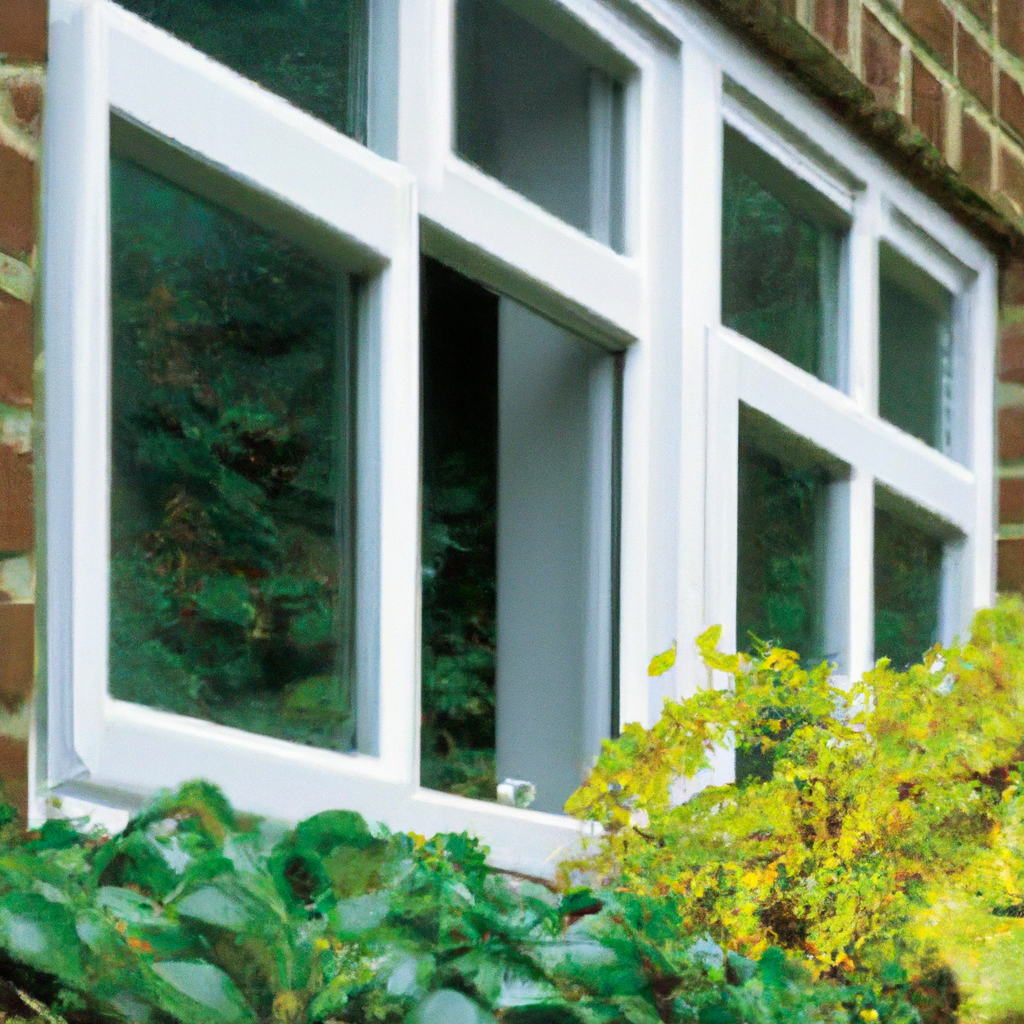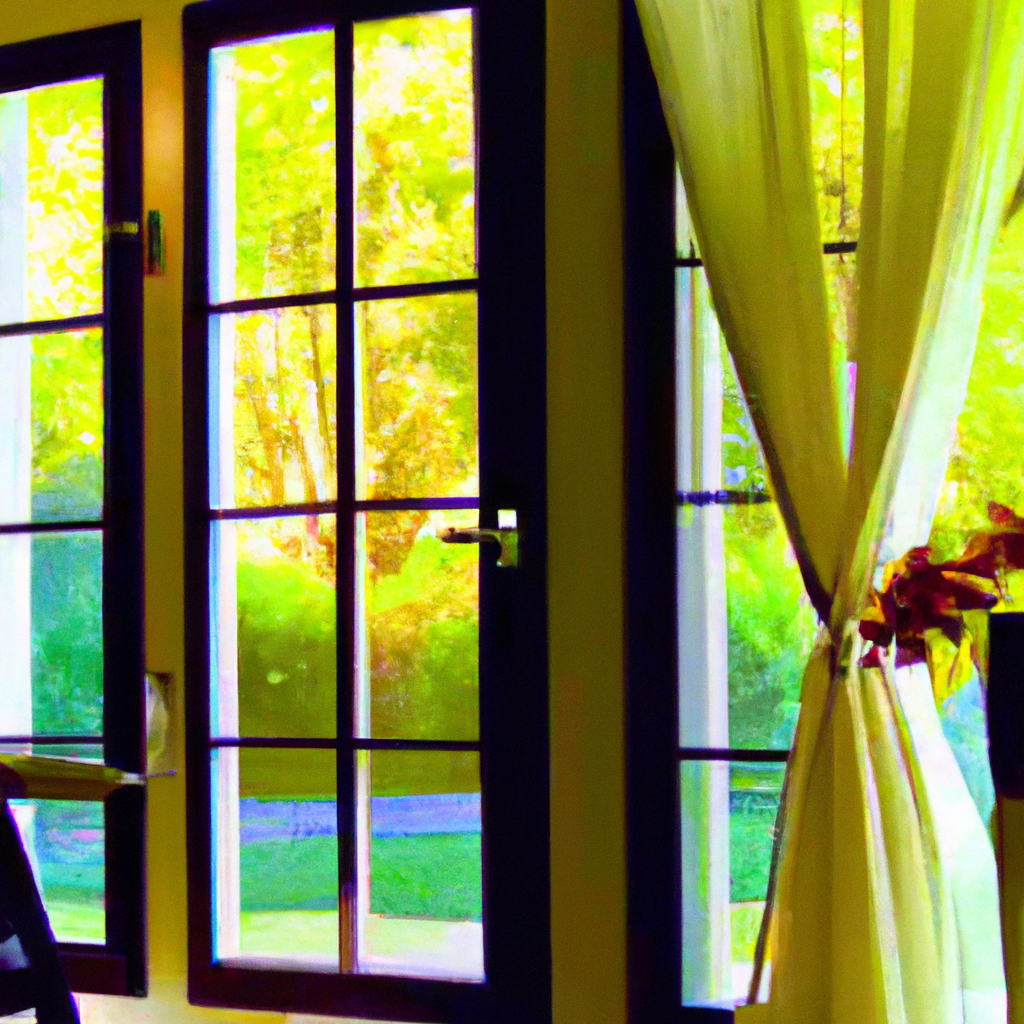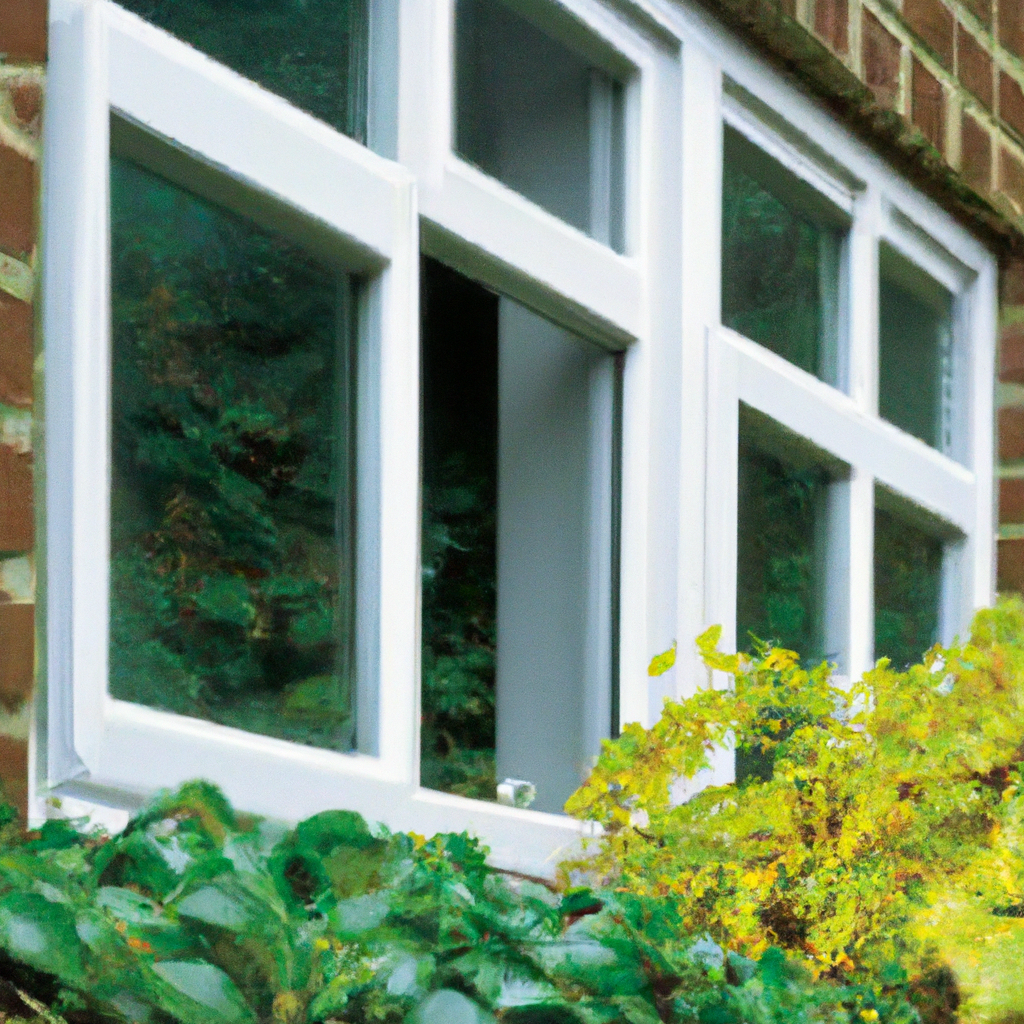So you’re thinking about getting impact windows and doors for your home, but you’re concerned about the environmental impact? Well, I’ve got good news for you! There are indeed eco-friendly options available when it comes to choosing impact windows and doors. In this article, we’ll explore some of these options and discuss how they can help you create a more sustainable and energy-efficient home. You’ll discover that going green doesn’t mean compromising on style or durability, so let’s dive in and explore the world of eco-friendly impact windows and doors!

Overview
Definition of impact windows and doors
Impact windows and doors are specially designed and constructed to withstand strong forces, such as hurricanes and other severe weather conditions. They are made with reinforced frames and impact-resistant glass that is able to withstand high winds and flying debris. These windows and doors provide protection for your home while also offering increased energy efficiency and security.
Importance of eco-friendly options
In today’s world, where environmental consciousness is becoming increasingly important, it is crucial to consider eco-friendly options for impact windows and doors. By using sustainable materials and implementing energy-efficient features, these eco-friendly options not only protect your home but also minimize the negative impact on the environment. Opting for eco-friendly impact windows and doors can contribute to reducing your carbon footprint and creating a more sustainable living environment.
Materials
Sustainable wood
One eco-friendly material option for impact windows and doors is sustainable wood. This type of wood is harvested in a responsible and sustainable manner, ensuring that forests are not depleted and biodiversity is maintained. Additionally, sustainable wood can be treated with environmentally friendly coatings and finishes to further enhance its durability and resistance to the elements.
Recycled glass
Another eco-friendly option for impact windows and doors is the use of recycled glass. By using recycled glass, the demand for new glass production is reduced, resulting in a lower carbon footprint. Recycled glass can be incorporated into the window panes, providing the same level of impact resistance while simultaneously contributing to the circular economy.
Fiberglass
Fiberglass is a versatile and eco-friendly material choice for impact windows and doors. It is made from a combination of glass fibers and resin, resulting in a durable and robust material. Fiberglass is known for its high strength-to-weight ratio, making it an ideal choice for impact-resistant windows and doors. Additionally, fiberglass is a recyclable material and can be reused or repurposed at the end of its lifespan.
Aluminum
Aluminum is another material commonly used in impact windows and doors, known for its durability and strength. This material is easily recyclable, making it a sustainable choice. In addition, aluminum frames can be designed to be thermally efficient, improving the energy efficiency of the windows and doors.
Vinyl
Vinyl is a popular material choice for impact windows and doors due to its durability, versatility, and affordability. It is also considered an eco-friendly option as it can be recycled at the end of its life. Vinyl windows and doors can provide excellent thermal performance, reducing energy consumption and contributing to a more sustainable home.
Energy Efficiency
Low-E coatings
One of the key features that make impact windows and doors energy-efficient is the use of Low-E (low emissivity) coatings. These coatings are applied to the glass surfaces and help to reduce heat transfer, keeping the interior of your home cooler in the summer and warmer in the winter. Low-E coatings also block harmful UV rays, protecting furniture and other interior finishes from fading and damage.
Argon or krypton-filled panes
To further improve energy efficiency, impact windows and doors can be filled with argon or krypton gas between the glass panes. These gases are denser than air, reducing heat transfer and increasing insulation capabilities. This gas-filled space acts as an additional barrier, minimizing the amount of heat or cold that can pass through the window or door.
Insulated frames
In addition to the glass, the frames of impact windows and doors play a crucial role in energy efficiency. Insulated frames, often made from materials such as fiberglass or vinyl, prevent heat transfer between the interior and exterior of the home. These frames are designed to be thermally efficient, minimizing drafts and keeping your home comfortable throughout the year.
Warm-edge spacers
Warm-edge spacers are another energy-efficient feature found in impact windows and doors. These spacers separate the glass panes and reduce heat transfer at the edges of the window or door. By using warm-edge spacers, the overall thermal performance of the window or door is improved, helping to conserve energy and reduce heating and cooling costs.

Certifications and Ratings
LEED certification
LEED (Leadership in Energy and Environmental Design) certification is a widely recognized green building certification program. Impact windows and doors that meet the stringent criteria set by LEED can contribute to earning points towards LEED certification for your home. This certification demonstrates a commitment to sustainability, energy efficiency, and environmental responsibility.
ENERGY STAR rating
The ENERGY STAR rating is a government-backed certification program that identifies products, including windows and doors, that meet strict energy efficiency standards. By choosing impact windows and doors with the ENERGY STAR label, you can be confident that they have been independently tested and proven to save energy and reduce greenhouse gas emissions.
NFRC label
The National Fenestration Rating Council (NFRC) label provides information about the energy performance of windows and doors. It includes ratings for various factors such as U-value, solar heat gain coefficient (SHGC), visible transmittance, and air leakage. The NFRC label allows you to compare the energy performance of different impact windows and doors and make informed purchasing decisions.
Green Seal certification
Green Seal certification is awarded to products and services that meet rigorous environmental standards. While not specific to impact windows and doors, choosing products with Green Seal certification can give you confidence in their environmental performance. Green Seal certification ensures that the product has been independently verified to have minimal impact on the environment throughout its lifecycle.
Manufacturing Process
Use of renewable energy
Eco-friendly impact windows and doors are manufactured using renewable energy sources whenever possible. Manufacturers may invest in solar panels, wind turbines, or other renewable energy systems to power their factories and reduce reliance on fossil fuels. By using clean and renewable energy during the manufacturing process, the carbon footprint of these products is significantly reduced.
Recycling and waste management
To minimize waste and environmental impact, manufacturers of eco-friendly impact windows and doors implement comprehensive recycling and waste management programs. During the manufacturing process, excess materials and waste are systematically collected and recycled rather than being sent to landfills. This commitment to recycling ensures that valuable resources are not wasted and reduces the burden on the environment.
Reduction of VOC emissions
Volatile Organic Compounds (VOCs) are chemicals emitted by many building materials, including windows and doors. Eco-friendly manufacturers take steps to reduce VOC emissions by using low-VOC or VOC-free materials and finishes. This ensures that the impact windows and doors have minimal impact on indoor air quality and reduces the release of harmful pollutants into the environment.
Durability and Longevity
Impact resistance
The primary purpose of impact windows and doors is to provide protection against strong forces, such as hurricanes and severe weather. Eco-friendly impact windows and doors are designed to meet rigorous impact resistance standards, ensuring that they remain intact during such events. By withstanding impacts, these windows and doors offer long-lasting protection for your home and reduce the need for frequent replacements.
Resistance to UV rays
UV rays from the sun can damage furniture, flooring, and other interior finishes. Eco-friendly impact windows and doors are equipped with coatings that block a significant portion of harmful UV rays, preventing fading and degradation of your home’s interior. This resistance to UV rays helps to preserve the appearance and longevity of your belongings.
Maintenance requirements
Eco-friendly impact windows and doors generally require minimal maintenance to retain their performance and appearance. They are designed to withstand the elements and resist corrosion, rot, and decay. Regular cleaning and inspection are typically sufficient to keep them functioning optimally, saving you time, effort, and money in the long run.
Expected lifespan
The expected lifespan of eco-friendly impact windows and doors can vary depending on the specific materials used and the quality of manufacturing. However, when properly maintained, these windows and doors can last for several decades. Investing in eco-friendly options ensures that you are making a long-term commitment to sustainability and reducing the need for replacements in the future.
Cost Considerations
Initial investment
Investing in eco-friendly impact windows and doors may require a slightly higher initial investment compared to conventional options. However, it is important to consider the long-term cost savings and environmental benefits. Eco-friendly windows and doors can significantly reduce your energy consumption and lower utility bills over time. Additionally, the durability and longevity of these products often result in fewer replacements, saving you money in the long run.
Energy savings
One of the significant cost considerations of eco-friendly impact windows and doors is the energy savings they provide. By reducing heat transfer and improving insulation, these windows and doors can significantly reduce your reliance on heating and cooling systems. This can lead to substantial energy savings and lower monthly utility bills, offsetting the initial investment over time.
Potential government incentives
Government incentives and rebates may be available for homeowners who choose eco-friendly options for impact windows and doors. These incentives can help offset the initial cost and make the investment more affordable. It is worth researching local, state, and federal programs to determine if any incentives or tax credits are available in your area.
Installation and Professional Help
Choosing certified installers
Proper installation is crucial for the optimal performance and energy efficiency of eco-friendly impact windows and doors. It is recommended to choose certified installers who are experienced in installing impact-resistant products and have a track record of quality workmanship. Certified installers have undergone specific training and adhere to industry standards, ensuring that the windows and doors are properly installed and sealed.
Proper sealing and caulking
To maximize the energy efficiency and weather resistance of impact windows and doors, it is essential to ensure proper sealing and caulking during installation. This helps to prevent air leaks, water infiltration, and drafts. Certified installers are trained in applying the appropriate sealants and caulking materials, providing a tight and secure fit for the windows and doors.
Avoiding common installation mistakes
Improper installation can undermine the performance and effectiveness of impact windows and doors. Common mistakes, such as incorrect measurements, inadequate framing, or improper attachment, can compromise the structural integrity and energy efficiency. By choosing certified installers and closely following installation guidelines, you can avoid these errors and ensure optimal performance and longevity of the windows and doors.
Disposal and Recycling
Options for eco-friendly disposal
If you are replacing existing windows and doors with eco-friendly impact windows and doors, it is important to consider the eco-friendly disposal of the old materials. Many municipalities have recycling programs or special facilities that can accept old windows and doors for proper recycling. Proper disposal ensures that the materials are diverted from landfills and can be recycled or repurposed.
Recycling programs for impact windows and doors
Some manufacturers have recycling programs in place for their impact windows and doors. These programs allow you to return the old windows and doors to the manufacturer for recycling or responsible disposal. Recycling programs ensure that the materials are properly handled and can be reused in the manufacturing of new products, closing the loop and reducing environmental impact.
Case Studies and Success Stories
Examples of eco-friendly impact windows and doors
Numerous companies offer eco-friendly options for impact windows and doors. For example, Company X specializes in impact windows and doors made from sustainable wood sourced from responsibly managed forests. Company Y produces impact windows and doors with recycled glass, contributing to the circular economy and reducing the demand for new glass production. These examples highlight the diverse range of eco-friendly options available in the market.
Positive results and testimonials
Customers who have installed eco-friendly impact windows and doors often report positive results and satisfaction. These windows and doors not only provide protection and energy efficiency but also contribute to a more sustainable and environmentally friendly lifestyle. Testimonials from homeowners highlight the reduced energy consumption, increased comfort, and peace of mind that comes with choosing eco-friendly options.
In conclusion, there are indeed eco-friendly options for impact windows and doors. These options utilize sustainable materials, incorporate energy-efficient features, and are manufactured with minimal impact on the environment. By choosing eco-friendly impact windows and doors, you can enhance the sustainability of your home, reduce your carbon footprint, and enjoy long-lasting protection and energy savings.
